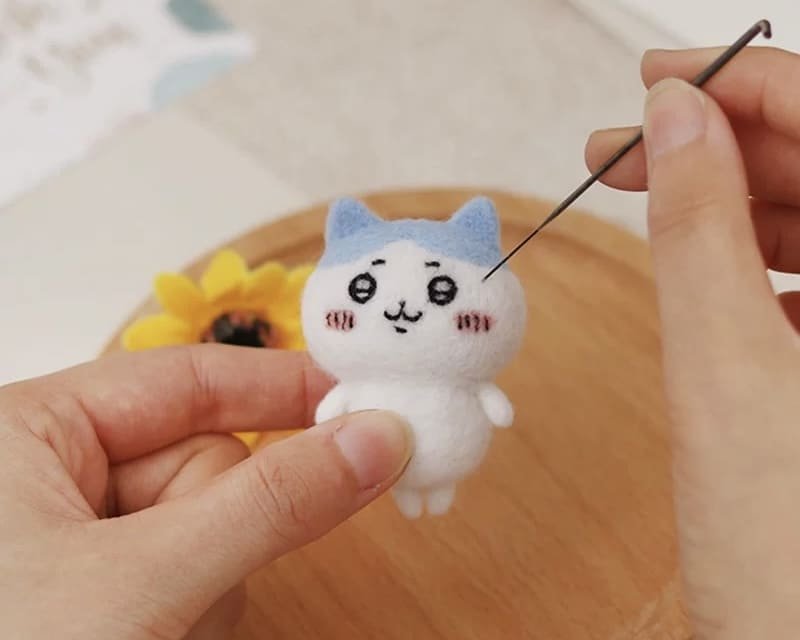How Does Needle Felting Work?
Needles Felting is an artform characterized by repeatedly poking wool fibers with a barbed syringe until they tangle, shrink and form different textures and forms. Beginners should start slowly for optimal results.

Beginners often begin their exercise sessions using basic shapes like spheres and ovals as building blocks to assemble animals or accessories, often starting off using cookie molds for easier shaping.
Necessary Steps to Follow
Here are the necessary steps that must be followed:
Beginners looking to add details in their work should opt for fine or medium triangular needles for maximum results.

Wool and Materials
Wool is highly esteemed for its exceptional textile properties.
Mats: Wool felt and foam mats provide valuable surface protection from liquids or debris on tables, helping ensure needles do not scatter around on them.

Shaping Wool
To quickly and effortlessly shape wool, try compressing and rolling into irregular forms such as columns or balls – this will add structure and body to your wool!
Utilise a needle and puncture the wool mat repeatedly with it, moving in an inconspicuous line across its width in order to avoid breaking or benting your needle. In order to maximize accuracy while minimising waste, move needle continuously along width of mat.

Wool Solidification and 3D Structures
Wool is quick to solidify once punctured by needle, with additional punctures speeding this process along. Gradually adding additional wool can allow you to create three-dimensional structures.
Details and Modifications
Details and Modifications: In order to achieve an aesthetically pleasing finish and emphasize delicate features, details may need to be modified using thin nippers for more even finishing and emphasis of subdued elements.
When joining two parts, such as head and body, make sure their edges overlap as much as possible before puncturing multiple times with an needle for jointing purposes.
Individual pieces (ears, arms and legs) can then be secured separately.

Precautions
To safeguard the wellbeing of your fingers when working with needles, always wear fingertip protection. Needle points can be razor-sharp; in addition, they tend to shatter more readily if applied directly against their point without any angle or strain applied against its tip.
Make sure all needles are stored safely to reduce risks to both users and members of the public.

Common Issues and Advice
Beginning needleworkers often experience needle breakages due to accidental angles or force that exceed their capabilities, so beginners should practice safely by standing up straight when engaging in this art form to increase overall safety.
By adding more wool and needle stabs to your work, it may become “stuck”.
Beginners can quickly develop basic forms by employing tools such as cookie molds.

Cost and Benefits
Needle felting is an accessible introduction to needle felting for beginners, costing only $15-20 in tools and material kits. Cookie molds make perfect starting shapes to get needle felting underway; once you learn how to form balls using basic ball-making method, your creativity can truly flourish! Needle felting can not only be used decoratively – its benefits extend far beyond this as you sculpt beautiful small creatures or decor with this craft!

Conclusion
Needle felting is an engaging hobby to explore and a simple yet rewarding way of creating handmade projects with woolen objects that bring life and vitality into our daily lives and surroundings! Needle felters use basic tools and patience to craft beautiful needle felted objects which enhance their lives and bring new vibrancy into their environments.

